Day Two of BPC came and went without disappointing. From very special awards honors to some pertinent, valuable discussions and learning opportunities, attendees were once again given everything to make it another successful day in Orlando.
Honoring the Most Deserved
To kick off the day, as per usual, APMP would deliver another exceptional keynote, but before that, the Association had some recognizing to do. First to make his presence felt was Charlie Divine, the namesake of the new APMP certification scholarship program: the Charlie Divine APMP Certification Scholarships.
“I am so glad to have these scholarships support deserving members on their path to certification,” Divine said. “I’m honored to have this scholarship bear my name.”
Nine Foundation-level, 12 Practitioner-level, and six Professional-level recipients, totaling $16,000 in awards, were recognized during the opening session. See the full list of recipients here.
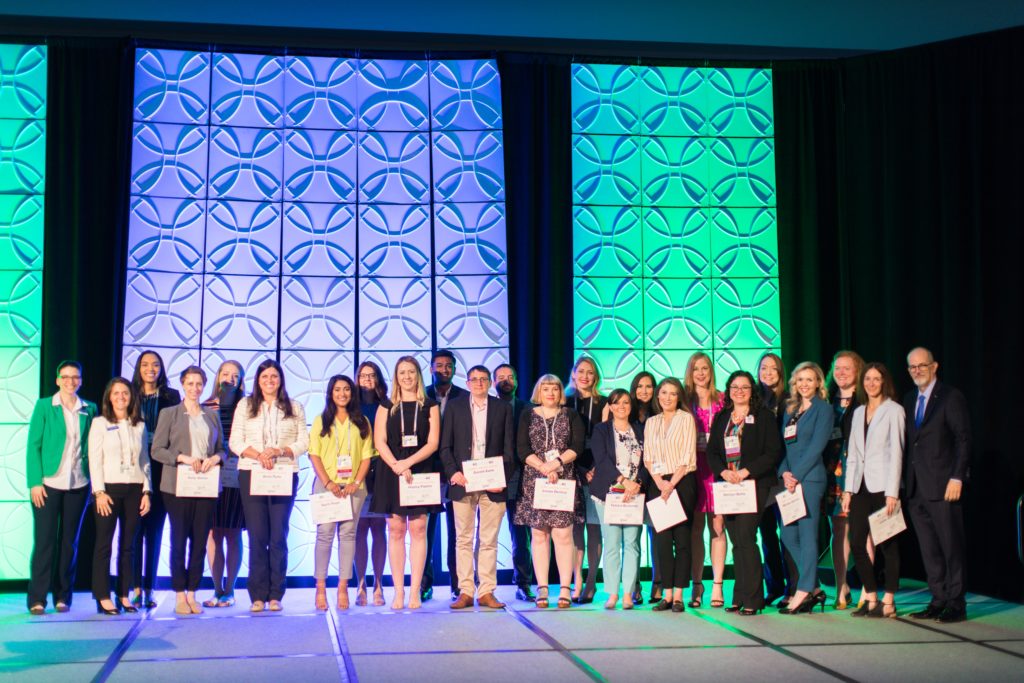
Next, it was time to highlight an APMP awards program that has been a huge success in its now three years of existence. The brainchild of APMP Vice President of Business Development and Operations Christina Lewellen, the 40 Under 40 program has grown to become a true honor for recipients. This year garnered more than 110 nominations, and 23 of the 40 recipients were in attendance to receive their awards on stage at BPC.
Some Healthy Conversation
After the terrific awards program, Carson introduced Day Two’s opening keynote, Dr. Ann Kulze, who delivered an eye-opening presentation, The Happiness Diet, to a full room of attendees. Kulze, a physician and award-winning author, had the crowd paying considerable attention to eating healthier and feeding the brain the nutrients it needs.
Because so many APMP members are health and fitness junkies, it seemed only fitting to get a thorough breakdown on why that lifestyle is worth giving a shot. Kulze outlined health information such as good carbs vs. bad carbs, good oils vs. bad oils, and much more on how to best take care of our bodies. She concluded with a message of kind words for APMP and its members. “Thank you to APMP for giving me this opportunity, but especially for their advocacy for you.”
APMP Benchmark Study
In the early afternoon Wednesday, APMP met to discuss the release of its 2019 U.S. Industry Benchmark Report. This report offers the most comprehensive benchmarking data the bid and proposal industry has ever produced. Rick Harris, Ginny Carson, and Christina Lewellen were front and center to address any questions from session attendees.
Lewellen coordinated the data collection and creation of the study. “As an association, we are uniquely positioned to be able to gather competitive data at a very broad level,” she said. “Our duty to the industry is then to provide this comprehensive competitive data in aggregate so you can see where you stack up.”
Carson, who also chairs APMP’s Market Research Committee, talked about the value of the study. “You can use this report in your company to look at your standings,” she said. “If we are meeting the standards, then what can we do to beat those standards? This tool will enable you to be much more competitive.”
The executive summary, which lists 12 of the study’s key findings, will be available to APMP members free ($99 for nonmembers). The full report will be $275 for members and $475 for nonmembers. APMP offered BPC attendees-only discounts during Thursday’s opening session, which will be detailed in a final-day roundup later that day.
Standout Sessions
Org Designs in Bid Management
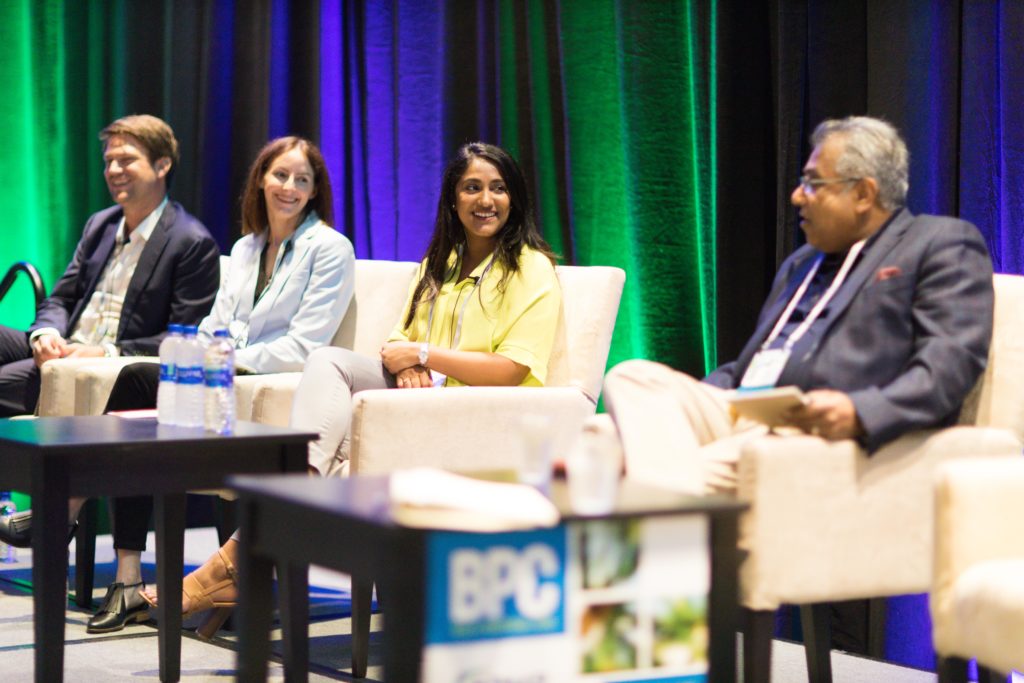
Moderated by Brad Douglas, executive vice president of global strategy, Shipley Associates
Panelists:
Felix Becker, head of bid and proposal management in Australia, New Zealand and Japan, SAP
Callie Apt, senior director of sales enablement and proposals, Domo
Sachi Patel, global proposal manager, Microsoft Corp.
Sam Singh, managing partner, Shipley India
Led by moderator Brad Douglas, the panel addressed attendees’ questions ranging from topics such as growing from a one-person team to implementing automation software. Differing organizational structures have differing processes, but the insight can be just as valuable in any use case.
One of the biggest challenges noted in this session was getting executive-level buy-in, no matter the size of your team. Felix Becker delivered this perspective: “It’s a bit between trying to be more efficient and trying to be selective,” he said. “If we don’t give executives our feedback, at some point taking on more and more and more is going to be too much to handle.”
More specifically, if you’re a one-person team, Callie Apt shared her past experience. “Some of the things I look for are the metrics that matter to my executive team. What are our win rates by customer, by industry?,” she said. “Make sure you start to collect that data, start to share it, and you get a lot more visibility around what you can add to support you.”
Leveraging AI for Persuasive Proposal Writing
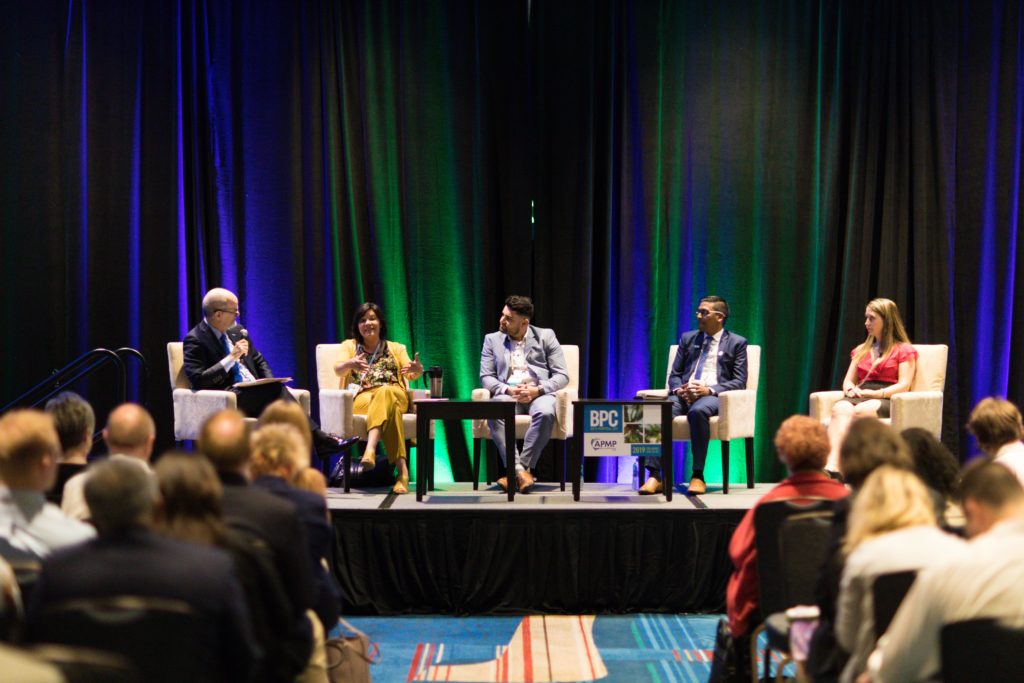
Moderated by APMP CEO Rick Harris
Panelists:
Kristin Dufrene, CPP APMP Fellow, strategic capture, executive director, CACI International Inc.
Phill Sundal, product marketing manager, RFPIO
Karthik Koutharapu, CF APMP, bid manager, Injazat Data Systems LLC
Ashley Kayes, senior proposal consultant, AOC Key Solutions
This highly engaging panel discussion directly followed the captivating “So How Does This AI Thing Work Anyway, and What Does It Mean for Proposal Management?” session, presented by Mark Cramer, applied AI product manager at Xerox, PARC. Cramer offered invaluable insight into technology that’s become more and more relevant, and necessary, as this industry moves into the future. This panel took the conversation a step further.
The bottom line: AI is here with tools like IBM Watson and Tone Analyser APIs, but panelists were clear that it must be leveraged carefully and managed even more so. AI will never replace the human element, but as Phill Sundal said during the session: “Applications are here today, but we’re going to always be chasing something to make our jobs more efficient,” he said. “The work it’s going to take to train the AI is going to be more work than it’s worth at first, but it will be worth it.”

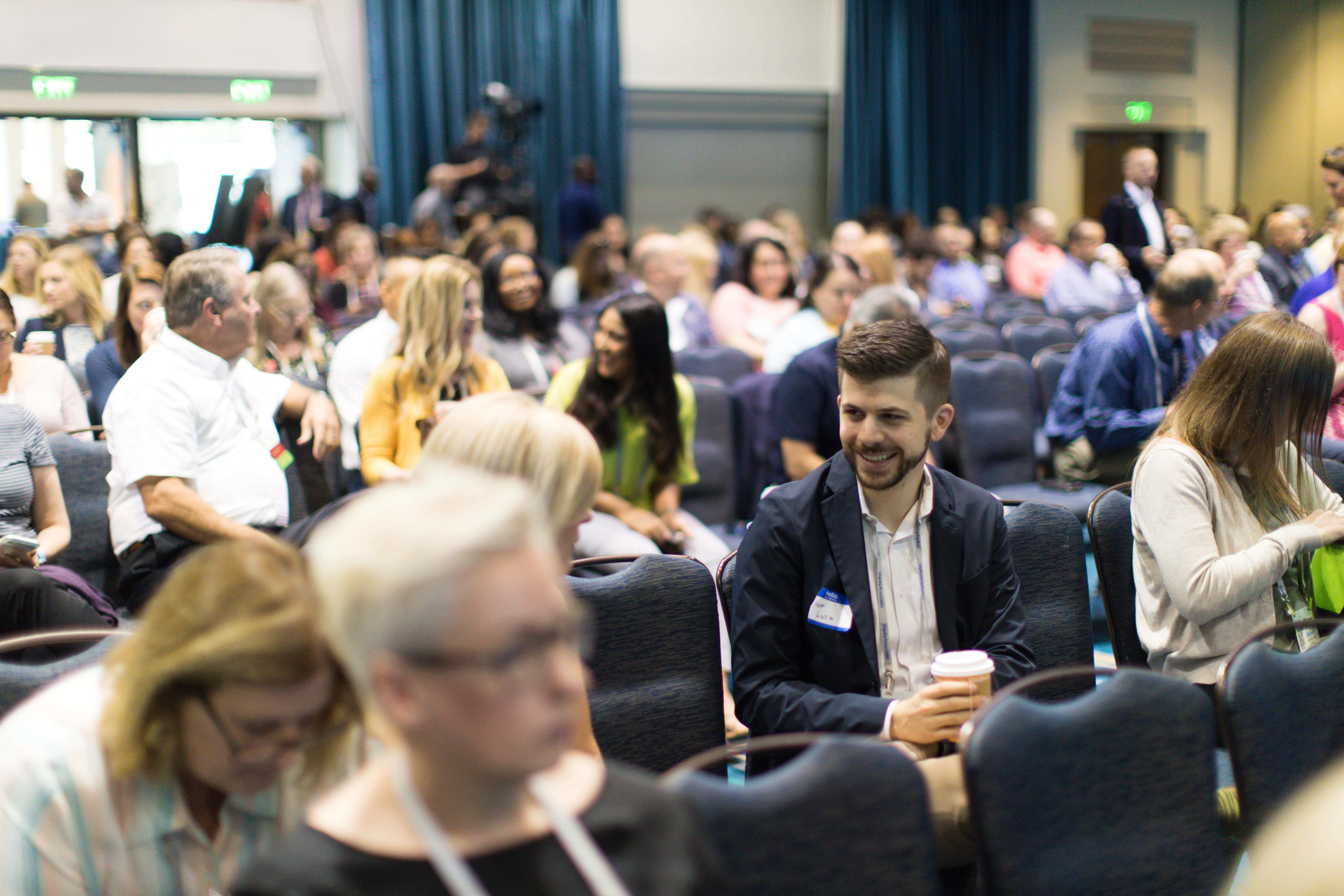
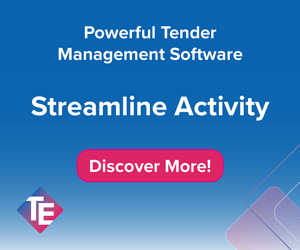
Join the Conversation